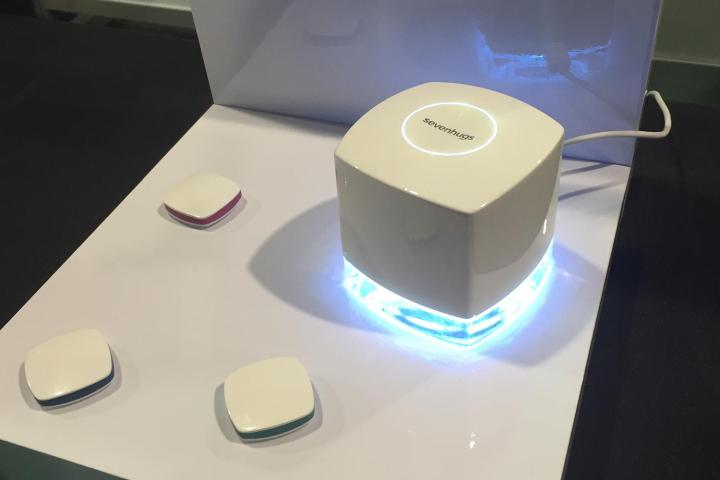
The hub works similarly to the Withings Aura, in that it doesn’t require a wearable to gather data. Instead, a small sensor, called a minihug, which you can cover with a sheet, rests at the corner of the mattress. It detects movement, along with temperature, humidity, and air quality. Unlike a Fitbit, it doesn’t need to be constantly recharged or resynched with a smartphone.
Though the kit comes with only two minihugs, the creators intended it to be a sleep device for the whole family. They named the company Sevenhugs because the three inventors, all fathers, have seven kids. Concerned their children weren’t getting a restful sleep, they worked with German doctors to find the correct algorithms to track sleep. Based on the feedback from the sensors, the hugOne can interact with a smart light bulb to turn on right when is best for your REM cycle.
One feature that will likely appeal to parents is the hugOne’s light. It glows when it’s time for the kids to go to sleep. How can they argue when a cube is telling them it’s bedtime?
But just because the kids are in bed doesn’t mean they’re asleep. The minihugs can monitor their movement and cease glowing once they’re actually snoozing. Once that happens, the monitor stops sending the device’s proprietary radio signal and simply records the data. Once the child leaves the bed, the minihug transmits the information to the hugOne.
Sleep Number debuted a smart bed for kids at CES, which covers a lot of the same ground. While the bed costs $1,000, the hugOne will retail for $169 when it’s released later this year. Each additional minihug costs $30.


